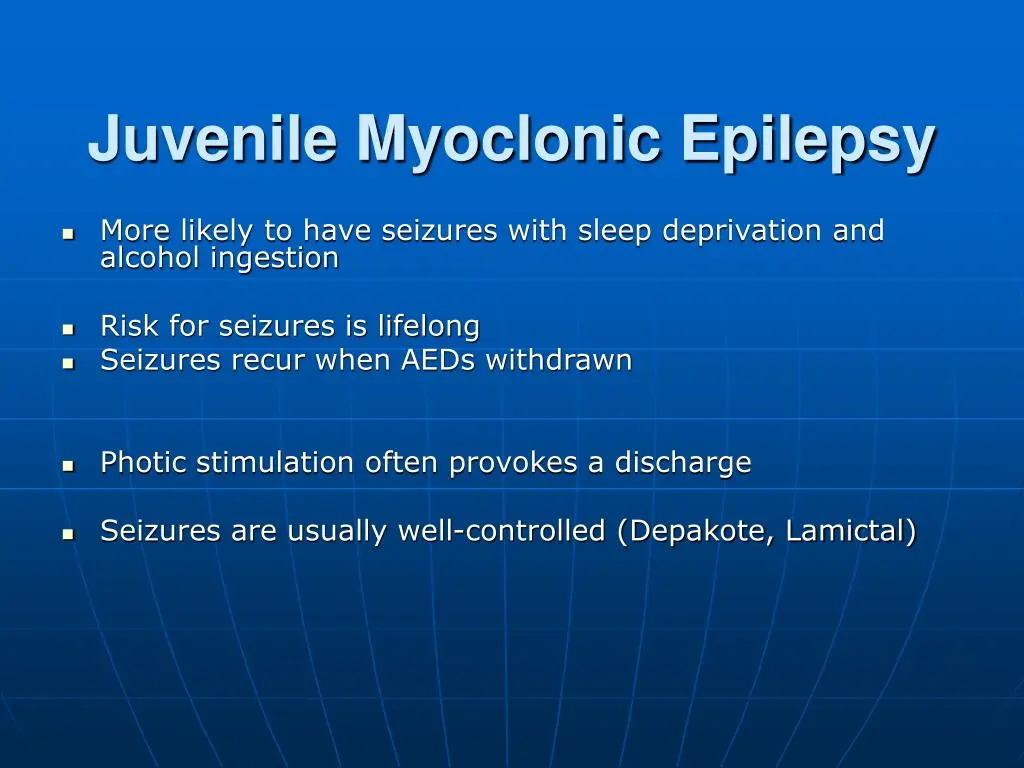Can Juvenile Myoclonic Epilepsy be Cured?
Sometimes
Lifelong management with antiseizure medications; outcomes vary, and some individuals may achieve seizure control with appropriate treatment

What is Juvenile Myoclonic Epilepsy?
Juvenile myoclonic epilepsy is a type of epilepsy characterized by myoclonic seizures, typically occurring in the morning. Antiepileptic medications are often prescribed to manage seizures.

Clinical Aspects

Characteristics
Type of epilepsy characterized by myoclonic seizures (brief, jerking movements of the arms and legs) often occurring upon waking

Symptoms
Myoclonic seizures, absence seizures, generalized tonic-clonic seizures

Diagnosis
Clinical evaluation, sometimes EEG (electroencephalogram)

Prognosis
Generally good with appropriate management

Complications
Seizure-related injuries, complications affecting daily life
Etiology and Treatment

Causes
Genetic factors, often with a family history of epilepsy

Treatments
Antiseizure medications (antiepileptic drugs)

Prevention
Antiseizure medications (antiepileptic drugs)
Public Health and Patient Perspectives

Epidemiology
Epileptic seizures, often beginning in adolescence

Patient Perspectives
Antiepileptic medications, lifestyle modifications
This information is for general understanding and is not a substitute for professional medical advice. Always consult with healthcare providers for accurate and personalized information related to your health.
Share: